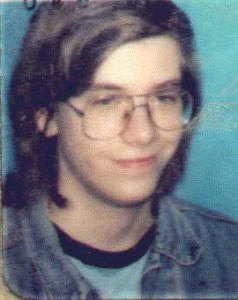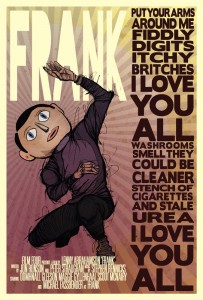Draftback: Burn After Writing
So, the Somers How Close Are We to True Dystopia (SHCAWTTD, pronounced SHWATTED) Scale has basically been at two minutes to midnight since the Internet came to be, and inched just slightly closer to Kaboom Time with the invention of Draftback, which allows you, essentially, to record yourself while working in Google Docs. In theory, this means you could spend two years working on a novel in Google Docs and then you – or someone else – could watch the whole slog, complete with every typo, deleted chapter, and occasional Freudian Slip where you insert your mother’s name into a squicky sex scene or something.
On the one hand, I can see where something like that might be fascinating to readers. Imagine being able to see James Joyce write Ulysses word by word (possibly fast-forwarded just a tad, and maybe with some judicious editing to compress time a little). The insights you’d get! Assuming you could stay awake/stay alive long enough, of course.
For a writer, or at least for this writer, this is a horrible thing. It’s like that episode of Black Mirror where everyone records their entire lives: Horror. The last thing I want anyone to know is how awful my initial ideas are – or, sometimes, how little I actually edit (revising is for nerds). Although, naturally, I doubt anyone will ever be sufficiently interested in little old me to want to view my writing process that closely – but still, it’s a thought akin to dying suddenly without being able to contact your Porn Buddy to instruct them to destroy your collection before your family finds out you took that Brony thing waayyyyy too seriously.
Plus, knowing that your early drafting and revision might be viewed by people someday would, of course, have an affect on your writing. And probably not a good one.
Intent
There’s a time in a writer’s life when they don’t seriously expect anything they create to be published. It’s usually when you’re younger; if you stick to it and do the work, chances are you’ll get published somewhere, somehow. Maybe not as often, or as widely, or as lucratively as you’d like – but still, published. But when you’re still starting out, that can seem very, very far off. So a lot of the writing you do is private, in a sense – you don’t expect anyone to ever see it.
And of course that gives you a lot of freedom, because if you doubt anyone will see it, why not experiment? Have your characters say and do awful things beyond the pale? Be incomprehensible, maudlin, sentimental, savage – make your main character a Sue of yourself and delight as they do everything right, cut down their enemies with devastatingly precise bon mots – go crazy. Why not? If it turns out to be half-decent you can revise it into something civilized. If it remains half-assed and embarrassing, you can have a private ceremony and burn it in the bathroom. Or add it to the Brony porn stash and set up a Dead Man’s switch that will alert your Porn Buddy. Either way.
But if you knew everything you wrote – literally, every single key you hit with your pudgy little fingers – was being recorded and might be viewed someday (say, at the inevitable depositions you’ll be mired in after your criminal schemes go awry), you’d do it differently. You’d pause longer between words. You’d think ahead a bit more, maybe even cheat and scribble out your first drafts in a burn-after-writing notebook. It would change everything, and not for the better, because you only know something’s worth reviewing in Draftback when it’s finished.
Now that we’ve got that settled, on to more important questions: Who wants to be my Porn Buddy?









